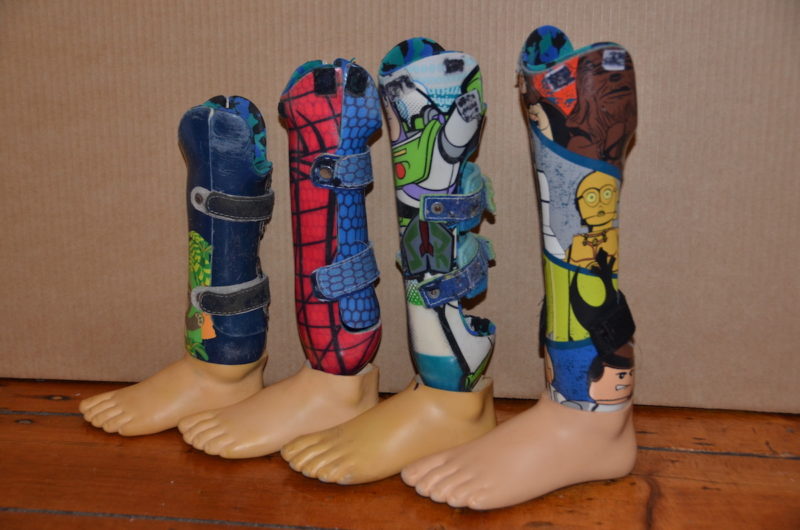Silicone Prosthetics-Services
Silicone prosthetic services encompass a range of offerings focused on creating realistic and comfortable artificial limbs and body parts using medical-grade silicone. These services are crucial for individuals who have experienced limb loss (amputation or congenital absence) or have other cosmetic needs due to trauma or medical conditions.
Here's a breakdown of what silicone prosthetic services typically involve:
1. Types of Silicone Prostheses:
Upper Limb: Hands and Fingers: Highly detailed prostheses that can restore the appearance of missing fingers, partial hands, or entire hands. Some may offer limited functional assistance, like providing opposition for grasping.
Arms: Cosmetic covers for traditional prosthetic arms, enhancing their appearance. Some advanced silicone arms can integrate with myoelectric or body-powered systems.
Lower Limb: Feet and Toes: Partial foot prostheses, toe fillers, and cosmetic covers for below-knee or above-knee prostheses, focusing on restoring a natural appearance and improving balance.
Legs: Cosmetic silicone sleeves or full covers for prosthetic legs, designed to look like natural skin and musculature.
Facial Prosthetics (Epitheses): Nose, Ears, Eyes (Orbital), Cheeks: Custom-made silicone prostheses to restore facial features lost due to surgery, trauma, or congenital differences. These are often held in place with adhesives, magnets, or osseointegrated implants.
Somato Prosthetics (Body): Breast Forms and Nipple Prosthetics: Used after mastectomy or for cosmetic enhancement.
Limb Fillers: Silicone prostheses to restore volume and shape in areas affected by trauma or surgery.
2. Key Aspects of Silicone Prosthetic Services:
Custom Design and Fabrication: Each silicone prosthesis is typically custom-made to fit the individual’s unique anatomy and needs. This involves:
Consultation and Assessment: Understanding the patient’s goals, lifestyle, and the specific requirements of the prosthesis.
Measurements and Impressions: Taking detailed measurements and creating molds or 3D scans of the residual limb or affected area.
Sculpting: Skilled technicians sculpt the prosthesis to achieve a realistic shape and form.
Color Matching: Meticulous color matching using multi-layered techniques and sometimes specialized devices to replicate the individual’s skin tone, including variations, veins, and other details.
Texturing: Creating realistic skin texture, wrinkles, and even integrating features like hair.
Finishing: Adding details like fingernails (made of silicone or acrylic), freckles, and tattoos for a hyper-realistic appearance.
Material Properties: Medical-grade silicone is chosen for its biocompatibility, flexibility, durability, resistance to UV light and tearing, and its ability to mimic the look and feel of human skin.
Comfort and Fit: Ensuring a comfortable and secure fit is crucial for the patient’s well-being and function. Silicone prostheses can help protect sensitive skin and distribute pressure.
Cosmetic Realism: A primary focus of silicone prosthetics is to achieve a highly realistic appearance, which can significantly impact the user’s confidence and quality of life.
Functional Considerations: While many silicone prostheses are primarily cosmetic, some can offer limited functional benefits, such as assisting with grasping or providing support.
Maintenance and Care: Providing guidance on how to properly clean and care for the silicone prosthesis to ensure its longevity.
Collaboration with Healthcare Professionals: Silicone prosthetic services often involve collaboration with surgeons, therapists, and other healthcare providers to ensure the best possible outcome for the patient.
3. Where to Find Silicone Prosthetic Services:👇👇👇
At @sun-tech Prosthetics & Orthotics Center, plot 30 Majekodunmi Crescent Utako Fct-Abuja Nigeria
We recommended you consult with your doctor or rehabilitation specialist and inquire specifically about their experience with silicone prosthetics.
Ask for examples of their work: Seeing before-and-after photos can help you assess the quality of their silicone prostheses.
Discuss your specific needs and expectations: Ensure the prosthetist understands your goals for both appearance and function.
Silicone prosthetic services play a vital role in helping individuals regain confidence and improve their quality of life after limb loss or in cases of facial or body differences. The advancements in materials and techniques allow for increasingly realistic and comfortable outcomes.
Call today for your free consultation!
Simply give us a call and book an appointment for yourself. We are here to help.
Walk into our Offices and let us take a closer look to suggest the best care you need.

